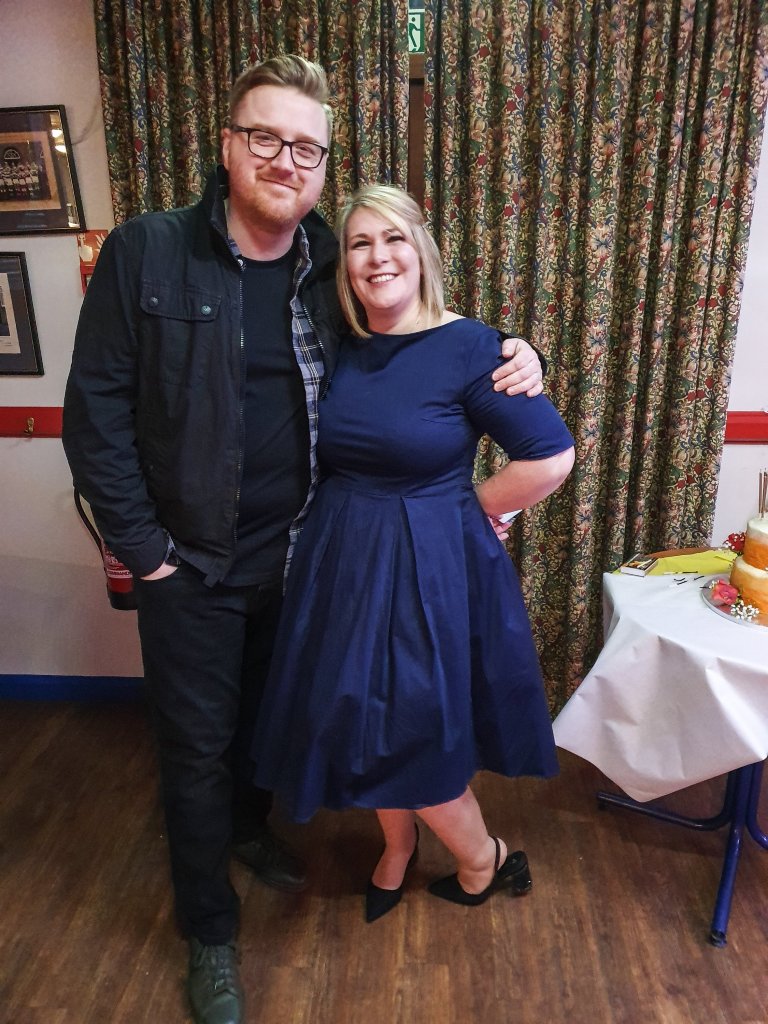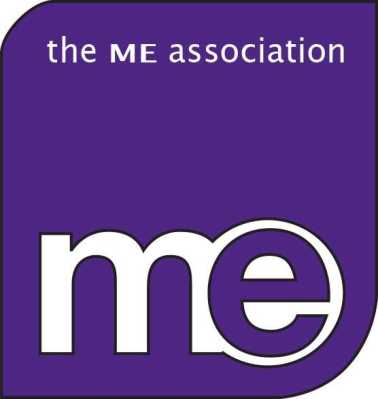It was my wife’s 40th birthday party last weekend. I’d spent most of the previous week in bed, partly because I was trying to minimise my energy output so that I was in a good place to go, and partly because I didn’t have any energy to do otherwise!

This was the first time out in the evening for me past 8pm for a very long time. I soon realised that I was running on adrenalin. After half an hour of trying to converse with old friends against the DJ, who had already been asked to turn it down, and my words coming out slowly, I retreated to the car with my pint of cider in hand. As I escaped inside my noise cancelling headphones I could feel my heart thumping in my chest. This was not good. I did enter the fray again to hear a dear friend play his guitar and sing a song he’d written especially for the occasion, and to eat some good food. I seemed to acclimatise a bit but the environment still felt like a head-spinning torture of sensory overload. Instead I spent time in the foyer of the rugby club sitting on the stairs and people joined me to chat on the way to the toilet!
The ‘Post Exertional Malaise’ or ‘Post Exertional Neurological Exhaustion’ is still hitting hard and I’ve hardly left my bed since the party three days ago. However, my wife was so pleased I was there as so often she has been out with the kids and felt sad that we’re not able to do things as a family. There was no way I’d miss her 40th. We’ve been together for twenty years this year!
Takeaways
There are two big takeaways for me from this experience:
1) A little bit of grief at how far away I am from being able to go to a gig and enjoy live music in a busy venue.
2) How hard it is to be a people person when you can’t really be a people person.
Point one is what it is. I can only hope that I can work back to being able to at least go to an acoustic set in a quiet venue one evening.
Point two has deeper, more profound implications. I’ve often heard it said anecdotally that most people with ME tend to have been active, outgoing individuals before they became ill. I have no idea whether this is statistically true or just a bit of a myth. However, I must have decided to go into social work as it suited my character and desire to help and interact with others to bring about positive social change. I spent seven years of my adolescence with ME before recovering, so I got used to spending time alone. I can hack it because I had to, and those years were probably good preparation for being able to deal with the isolation over twenty years later as an adult with ME. Don’t get me wrong, I have my wife and kids and my parents close by and I know so many heroes with chronic illness who may not interact with anyone in person for days or weeks, so I’m fortunate. Yet, I love engaging with people, hearing their stories and walking with them, both physically and metaphorically! It feels so hard not being able to relate in a truly meaningful way without the risk of repercussions to one’s health.
In rural Northumberland we have some of the best skies for star gazing and I was recently sat outside in the cold just looking at the stars and thinking how wasted my skills were. Not in any proud or arrogant way, or even in profound grief this time, but almost in a detached, pragmatic way. I ploughed 18 years into building a career and skill base. I hope I was always looking to improve at what I did, and increase my knowledge, communication skills and learning. I’ve always been passionate about supporting foster carers to be the best they could be in helping the kids in their care and I feel that I was quite good at it. If I’m struggling to even find the words at a party to tell someone about some carpet the fitters laid in the spare bedroom, how could I possibly competently do the things necessary to be a paid professional in a complex role? The reality of that career loss hits home. It’s a quieter and calmer sort of sadness now though: just a recognition that the universe is missing my contribution.

Lone working
So what if you’re really a people person but this living hell has given you the worst job ever: caring for your own body on a lone working basis?
I don’t really have any 12 point list or snappy catchphrase. “Be the change you want to see” feels contrived in these circumstances because just getting to the toilet can be an achievement for many of us, so making efforts to build community takes energy we often just don’t have. On Maslow’s hierarchy of needs, a psychological model used in teaching most caring professions, it’s acknowledged that an individual’s basic needs have to be met before they can start to truly consider any meaningful purpose-led activity, or reach the top tier of ‘self actualisation.’ For example, on a basic level this helps explain why children cannot learn effectively without having eaten breakfast! When living with ME, we have to cheat the model: scrape the energy barrel and find a way to ensure our basic needs for food, warmth and shelter are met, while also finding meaning in something.
Online lifeline
For me, Twitter has been massive in helping to develop friendships and stem the isolation. It feels like a different beast to Facebook as my online communities are so different. I feel like Twitter is where I find my chronic illness tribe who just understand, while Facebook is full of people who appear to be moving on with their lives: holiday snaps and family outings.
One thing Facebook is great for is groups. I’m part of a few non-ME related groups for specific interests. While these relationships are far flung, I do find these online friendships are really important to me now. Last night I took part in a video conference call with about eight others. We had a shared interest and although I was in bed, I felt able to engage in a meaningful way without all the exertion of going out of the house. It was a great time and made such a difference to my psyche. I’m wondering if there’s a way we can bring these group video calls into our wonderful ME community.
Positive psychology
Beyond utilising online services to develop relationships, for me, life is about dealing with the emotional frustration of being dumped out of society by this illness.
Prolific blogger Jo Moss recently wrote an excellent piece about self-care which is definitely worth checking out. For me, meditation is really helpful. I know I bang on about it, but If I can come to a place of contentment, acknowledging my grief and exhaustion and metaphorically letting go of it, then I find I’m in a much better place to interact joyfully with my wife and kids at the end of the day. A few months ago I drew the words Be Here Now and got it framed. I’m no artist but it hangs in our kitchen as a reminder, not only of Ram Das, the recently deceased guru who popularised the phrase, but to remain present, to focus on the relationships I do have and can manage, and so as not to strive for something which is out of reach.

Reframing negative thought pathways can also be helpful. Rather than regret my lost career, I can be grateful for the career I have had and hope that my work made a lasting difference to some of those children and young people I worked with. If I matched even one child with some foster carers I’d assessed, who made a profound lasting impact on the child’s life, then maybe the whole thing was worth it. Some days the grief enters and it’s not as simple as just thinking positively, as sometimes it’s all encompassing and far beyond just making a choice. Maybe then, we don’t have a choice as to how we feel on some days, but perhaps we do get a choice as to how we respond to those feelings.
Finally, one thing I love to do is be an encourager. If I see someone post on twitter that they’re struggling and no one else has commented in the last hour, I jump in there with a comment or funny gif. Sometimes it’s hard to motivate ourselves to encourage others when we’re in a tough place but I think it helps to develop a positive culture and its good for us!
The reality is, being a people person when we cannot be is tough. Conversation can be acutely exhausting but it’s also something we need for human flourishing. We need each other because deep down most of us need relationship. My hope is that we’re able to creatively find ways to continue to build community when the odds are stacked so heavily against us.


That’s lovely Daniel. You have a way with words. Thank you for being a great Twitter friend.
LikeLike
A brilliantly written piece Daniel.
LikeLiked by 1 person
I am new to your blog Daniel, (I read about it recently in me essential). I really love your approach to living with me, and many of your approaches to life mirror mine, especially ‘ Be here now’ and being present in the moment. ME can be such a roller coaster of , and more recently I seem to have lost the perspective you talk about..it felt encouraging to read your words, so thank you so much!
LikeLike
Thanks so much for reading! We all need to recentre from time to time!
LikeLike